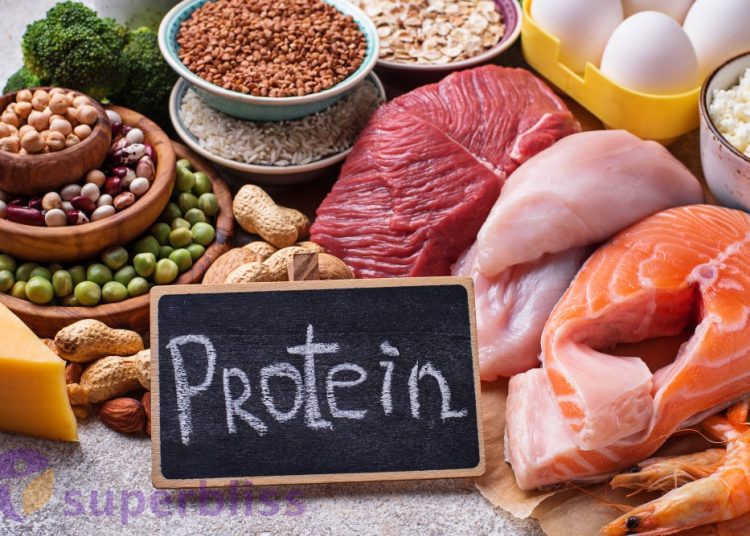Table of Contents
Losing weight is a goal that many people strive for. While there are numerous diets and exercise routines available, natural remedies for weight loss can provide an effective and sustainable approach. In this article, we will explore fifteen natural remedies that can help you shed those extra pounds and achieve a healthier body. From incorporating certain foods into your diet to adopting healthy lifestyle habits, we will cover a range of strategies that can support your weight loss journey.

1 The Power of Hydration
Staying hydrated is crucial for overall health and weight management. Drinking an adequate amount of water can help boost your metabolism and reduce feelings of hunger. Additionally, substituting sugary beverages with water can significantly reduce your calorie intake. Aim to drink at least 8 glasses of water per day to promote weight loss.

2 The Benefits of Green Tea
Green tea is widely known for its numerous health benefits, including its potential to aid in weight loss. The catechins and caffeine present in green tea can boost metabolism and increase fat oxidation. Incorporating a few cups of green tea into your daily routine can provide a natural and refreshing way to support your weight loss efforts.
3 The Role of Fiber
Fiber-rich foods are excellent additions to a weight loss diet. They promote feelings of fullness and help control appetite, ultimately reducing overall calorie intake. Foods such as fruits, vegetables, whole grains, and legumes are excellent sources of dietary fiber. Incorporating these foods into your meals can support healthy weight loss.
4 Healthy Fats for Weight Loss
Contrary to popular belief, not all fats are bad for weight loss. Healthy fats, such as those found in avocados, nuts, and olive oil, can actually aid in weight loss. These fats promote satiety and help regulate blood sugar levels, making you feel fuller for longer. Including moderate amounts of healthy fats in your diet can contribute to a balanced and effective weight loss plan.

5 The Impact of Protein
Protein is an essential macronutrient that plays a vital role in weight management. Including protein-rich foods in your meals can increase feelings of fullness and help maintain muscle mass during weight loss. Lean sources of protein, such as chicken, fish, tofu, and beans, can be incorporated into your diet to support healthy weight loss.
6 Metabolism-Boosting Foods
Certain foods have a thermogenic effect, meaning they can increase your metabolism and help you burn more calories. Examples of metabolism-boosting foods include chili peppers, ginger, and green leafy vegetables. Adding these foods to your meals can give your metabolism a natural boost and aid in weight loss.

7 The Magic of Apple Cider Vinegar
Apple cider vinegar has gained popularity as a natural remedy for weight loss. It is believed it helps suppress appetite, reduce fat storage, and improve digestion. Consuming a tablespoon of apple cider vinegar diluted in water before meals may aid in weight loss. However, it’s important to note that more research is needed to fully understand its effects and the appropriate dosage.
8 Spice Up Your Weight Loss
Adding spices to your meals not only enhances flavor but can also support weight loss. Spices like cinnamon, cayenne pepper, and turmeric have been shown to boost metabolism and reduce inflammation. Incorporating these spices into your cooking can not only make your meals more enjoyable but also provide potential weight loss benefits.
9 The Importance of Portion Control
Controlling portion sizes is crucial for successful weight loss. It’s easy to consume more calories than necessary when serving sizes are too large. Practice mindful eating and pay attention to your body’s hunger and fullness cues. Use smaller plates and bowls to visually trick yourself into thinking you’re consuming a larger portion. By being mindful of portion sizes, you can maintain a calorie deficit and achieve your weight loss goals.

10 Regular Exercise and Its Effects on Weight Loss
Exercise is a key component of any weight loss plan. Engaging in regular physical activity not only burns calories but also helps build lean muscle mass, which can increase your metabolism. Aim for a combination of cardiovascular exercises, such as running or cycling, and strength training exercises to maximize your weight loss efforts.

11 Quality Sleep and Weight Management
Sleep plays a vital role in weight management. Lack of sleep can disrupt hormone levels, leading to increased appetite and cravings. Aim for 7-9 hours of quality sleep each night to support your weight loss journey. Establish a regular sleep schedule, create a relaxing bedtime routine, and ensure your sleep environment is comfortable and conducive to restful sleep.
12 Stress Management and its Link to Weight Loss
Chronic stress can contribute to weight gain and hinder weight loss efforts. When stressed, the body releases cortisol, a hormone that promotes fat storage, especially in the abdominal area. Implement stress management techniques like meditation, yoga, deep breathing exercises, or engaging in hobbies to reduce stress levels and support healthy weight loss.
13 Intermittent Fasting for Weight Loss
Intermittent fasting is an eating pattern that involves alternating between periods of fasting and eating. This approach can help restrict calorie intake and promote weight loss. Popular intermittent fasting methods include the 16/8 method (16 hours of fasting and an 8-hour eating window) or the 5:2 method (eating normally for 5 days and restricting calories for 2 non-consecutive days). However, it’s important to consult with a healthcare professional before starting any fasting regimen.

14 Mindful Eating Practices
Practicing mindful eating involves paying full attention to the experience of eating, focusing on physical hunger and satiety cues, and savoring each bite. By eating slowly and mindfully, you can better recognize feelings of fullness and prevent overeating. Put away distractions like phones or television while eating, and truly engage with your meal.
15 The Power of Patience and Consistency
Weight loss is a journey that requires patience and consistency. It’s important to set realistic goals and understand that sustainable weight loss takes time. Avoid falling for quick-fix diets or extreme measures that promise rapid results. Instead, focus on adopting healthy habits and making gradual changes to your lifestyle. Consistency in healthy eating, regular exercise, and self-care practices will lead to long-term success.
16 Bottom Line
Achieving weight loss through natural remedies requires a holistic and sustainable approach to achieving your desired weight. . By incorporating hydration, green tea, fiber, healthy fats, protein, metabolism-boosting foods, and other strategies into your daily routine, you can support your weight loss goals.
By incorporating these remedies into your lifestyle and adopting healthy habits, you can take control of your weight loss journey and enjoy long-term success.
Remember the importance of portion control, exercise, quality sleep, stress management, intermittent fasting, and mindful eating. Be patient, stay consistent, and embrace a healthy lifestyle for sustainable weight loss.
17 FAQs (Frequently Asked Questions)
- Are natural remedies for weight loss safe? Natural remedies can be safe when used appropriately. However, it’s always a good idea to consult with a healthcare professional before making any significant changes to your diet or lifestyle.
- Can I rely solely on natural remedies for weight loss? Natural remedies can be effective as part of a comprehensive weight loss plan. It’s important to combine them with a balanced diet, regular exercise, and other healthy habits for optimal results.
- How long does it take to see results with natural remedies for weight loss? Results vary depending on individual factors and adherence to the remedies. It’s essential to be patient and consistent, as sustainable weight loss is a gradual process.
- Can natural remedies for weight loss replace medical treatment? Natural remedies should complement, not replace, any medical treatment or advice you receive. Consult with your healthcare provider to ensure a holistic approach to your weight loss journey.
- What if I have underlying health conditions? Can I still use natural remedies for weight loss? If you have any underlying health conditions, it’s crucial to consult with your healthcare provider before trying any natural remedies for weight loss. They can provide guidance based on your specific situation.
Note: The above content is for informational purposes only and should not replace professional medical advice. Always consult with a qualified healthcare provider before making any dietary or lifestyle changes.


 Fitness
Fitness




 Weight Loss
Weight Loss




 Health
Health


 Popular Items
Popular Items Health Recipes
Health Recipes




 Health Tools
Health Tools Media Feeds
Media Feeds















Discussion about this post